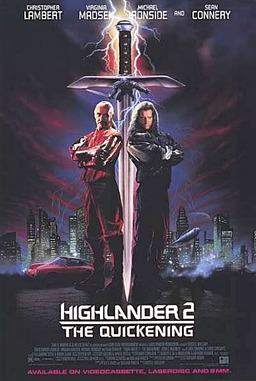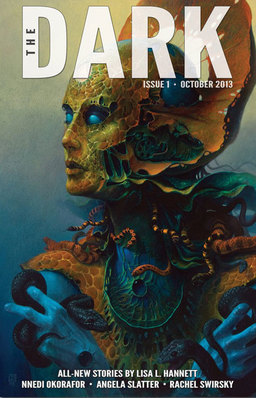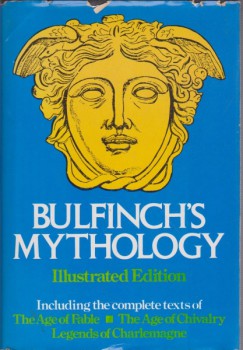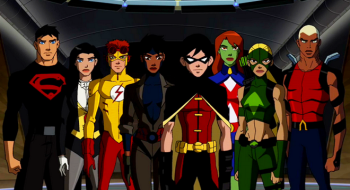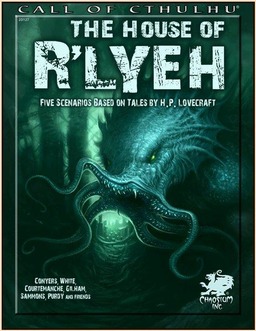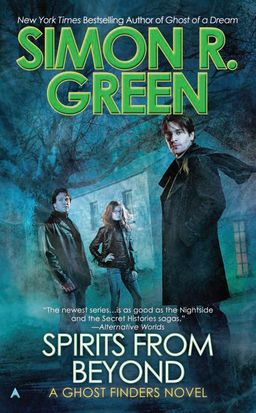 I don’t think I’ve given Simon R. Green a fair shake. The man is so prolific, with so many popular series, that he’s almost ubiquitous on book store shelves. I tend to overlook him when I scan the racks for new releases every week — my eyes are trained to ignore him, the same way they ignore the shelves dedicated to J.R.R. Tolkien and Jim Butcher.
I don’t think I’ve given Simon R. Green a fair shake. The man is so prolific, with so many popular series, that he’s almost ubiquitous on book store shelves. I tend to overlook him when I scan the racks for new releases every week — my eyes are trained to ignore him, the same way they ignore the shelves dedicated to J.R.R. Tolkien and Jim Butcher.
But being prolific certainly isn’t a crime, and neither is being popular. Being open to new things sometimes means trying that familiar midlist author you’ve ignored for too long. So last week I picked up a copy of the fourth and latest novel in his Ghost Finders series. After all, anyone who names his supernatural think tank the Carnacki Institute has got to be worth a look…
Meet the operatives of the Carnacki Institute — JC Chance: the team leader, brave, charming, and almost unbearably arrogant; Melody Chambers: the science geek who keeps the antisupernatural equipment running; and Happy Jack Palmer: the terminally gloomy telepath. Their mission: Do Something About Ghosts. Lay them to rest, send them packing, or just kick their nasty ectoplasmic arses…
Their latest assignment takes JC and the team to a small country village, site of a famously haunted inn. At first, JC thinks that the spirits in the King’s Arms are more the stuff of urban legend than anything that needs the Ghost Finders’ expertise. Then one story rings true: the tale of a traveler trapped by an unusual thunderstorm who retired to her room for the night — and vanished.
Trapped by an unusual thunderstorm — like the one that begins raging outside shortly after they arrive… As the team investigates, they are forced, one by one, to face some hard truths about themselves, their relationships, and the haunting itself — truths that may push Happy Jack over the edge into the madness that he has always feared…
Green is also the author of the Deathstalker space opera (8 novels), Hawk and Fisher (7 novels), The Forest Kingdom (4 novels), The Secret History series (7 novels so far), and Nightside (12 novels), among several others. I told you he was prolific. The Ghost Finder books take place in the same universe as his Nightside, Secret History, and other assorted novels, with frequent references to some shared characters, places and events. I bet keeping tabs on all that continuity drives him nuts.
The Ghost Finders of the Carnacki Institute tackle the paranormal with some gusto (their motto is “We don’t take any sh*t from the Hereafter.”) This looks like a fun Friday-night series, and I’m looking forward to digging into it.
Spirits From Beyond was published in September 2013 by Ace Books. It is 298 pages, priced at $7.99 for both the paperback and digital editions.
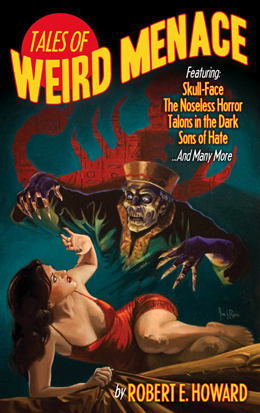
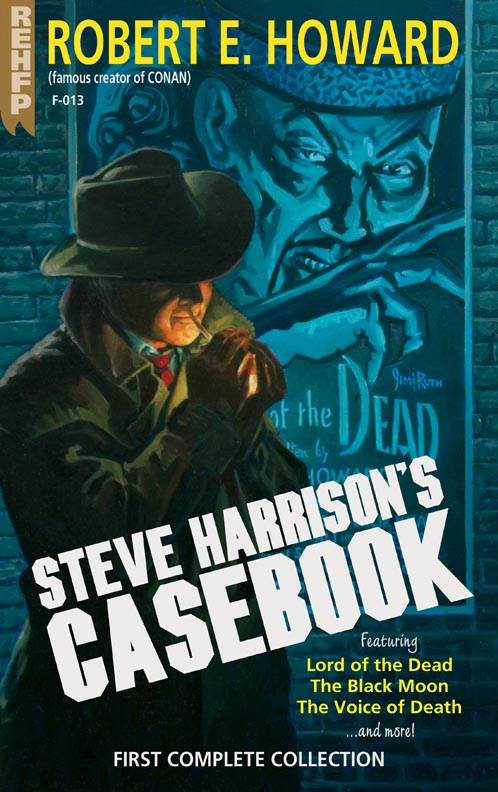 Many pulp writers were influenced by the success of Sax Rohmer’s Yellow Peril criminal mastermind, Dr. Fu Manchu. The best of the early imitators was Achmed Abdullah’s The Blue-Eyed Manchu while the pulp era brought Robert J. Hogan’s The Mysterious Wu-Fang and Donald Keyhoe’s Dr. Yen-Sin to give the Devil Doctor a run for his money.Today, the best remembered Fu Manchu clone is undoubtedly Ian Fleming’s Dr. No. Marvel Comics’ The Mandarin and The Yellow Claw are the other two characters who have burrowed the furthest into popular culture’s collective memory of the past century.
Many pulp writers were influenced by the success of Sax Rohmer’s Yellow Peril criminal mastermind, Dr. Fu Manchu. The best of the early imitators was Achmed Abdullah’s The Blue-Eyed Manchu while the pulp era brought Robert J. Hogan’s The Mysterious Wu-Fang and Donald Keyhoe’s Dr. Yen-Sin to give the Devil Doctor a run for his money.Today, the best remembered Fu Manchu clone is undoubtedly Ian Fleming’s Dr. No. Marvel Comics’ The Mandarin and The Yellow Claw are the other two characters who have burrowed the furthest into popular culture’s collective memory of the past century.